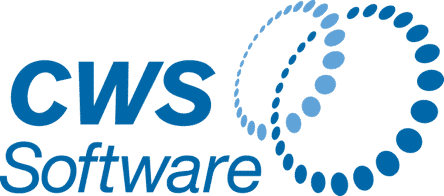Merit Raises vs. Cost Of Living Increases vs. Salary Range Adjustments: Choosing the right strategy for 2023

Inflation has been soaring at rates the US hasn’t seen since the 1980s—before much of the workforce was even born. It’s so high, in fact, that Social Security announced that recipients would be receiving a cost of living increase of 8.7% next year (compared to an average 2% per year from 2001 to 2020).
Adding rising inflation to an already tight labor market is making it even more difficult for employers to attract and retain talent.
Because salaries make up the largest portion of any organization’s expenses, increases are under the microscope. There are, of course, three bases on which increases are generally determined: employee merit, cost of living increases and salary range adjustments. So what’s best in this environment?
Merit raises
A merit raise can be a good a way to recognize top performers by rewarding them with a boost to their base salary. The intention, naturally, is to motivate employees to perform at their highest. To be effective, however, merit raises need to be combined with a well-structured employee performance evaluation methodology that is fair, clearly defined and transparent.
Cost of living increases
A cost of living adjustment (COLA) is an across-the-board salary increase linked directly to the rising costs of goods and services. These adjustments are intended to allow employees to maintain their standard of living as inflation rises.
Salary range adjustments
Using broad market data, employers can provide salary range adjustments to ensure that each employee is being paid appropriately for their role and the work they perform, relative to the market. This can ensure that salaries are fair, as well as help you compete with other employers for talent. Before providing salary range adjustments, however, a company must first structure all jobs within formal ranges, and establish salary minimums, maximums and midpoints based on third-party salary survey data.
The best approach to salary increases for your organization
If your company’s goal is to drive productivity and reward your top talent, merit raises can be a good way to do that. Be aware that objectivity and clearly defined performance review processes are key to bringing about your desired outcomes. If managers give merit increases subjectively—based on personal bias, limited to only the most recent events, or in response to strong self-promoters—a merit raise approach can harm morale across the organization.
On the other hand, if you’re merely keeping up with the cost of living, your employees may not feel valued. You may fall behind market rates for critical roles, especially your top performers. In recent years, with inflation hovering around 1.5%, a cost of living increase wouldn’t do much to inspire loyalty.
Until recently, salary range benchmarking tended to only be available in larger organizations with access to the resources required to manage this data year over year. For smaller companies, salary ranges can be complicated by the way employees often take on multiple roles, lack of access to large enough data sets, or the time it can take to align roles to ranges. Even in those cases, awareness of salary ranges for various roles can help you pay fairly and compete for employees. It’s important to remember that in times of market volatility, you have to continually check on benchmarking data to ensure that you’re not falling out of sync with the market. Stale data can put you at risk of losing valuable people to competitors offering higher wages.
Because each of these approaches has its strong points, the best solution tends to be drawing upon two or even all three for your annual salary review process. For example, you can start with a cost of living increase for all employees, layer on merit raises to recognize your high performers, and review all employees to ensure that you don’t have some who are falling behind what the market is offering.
Purpose-built is best
Rather than reinventing the wheel with unsecure, error-prone spreadsheets and email chains, purpose-built HR software such as TalentComp for salary planning makes it easy to divide salary pools based on complex criteria, route recommendations, and secure approvals. Best of all, thanks to a partnership with Salary.com, our clients of all sizes have access to up-to-date, reliable salary range and job data to guide decisions and help lock in talent. Reach out to CWS Software or schedule a demo to see how we can help.
